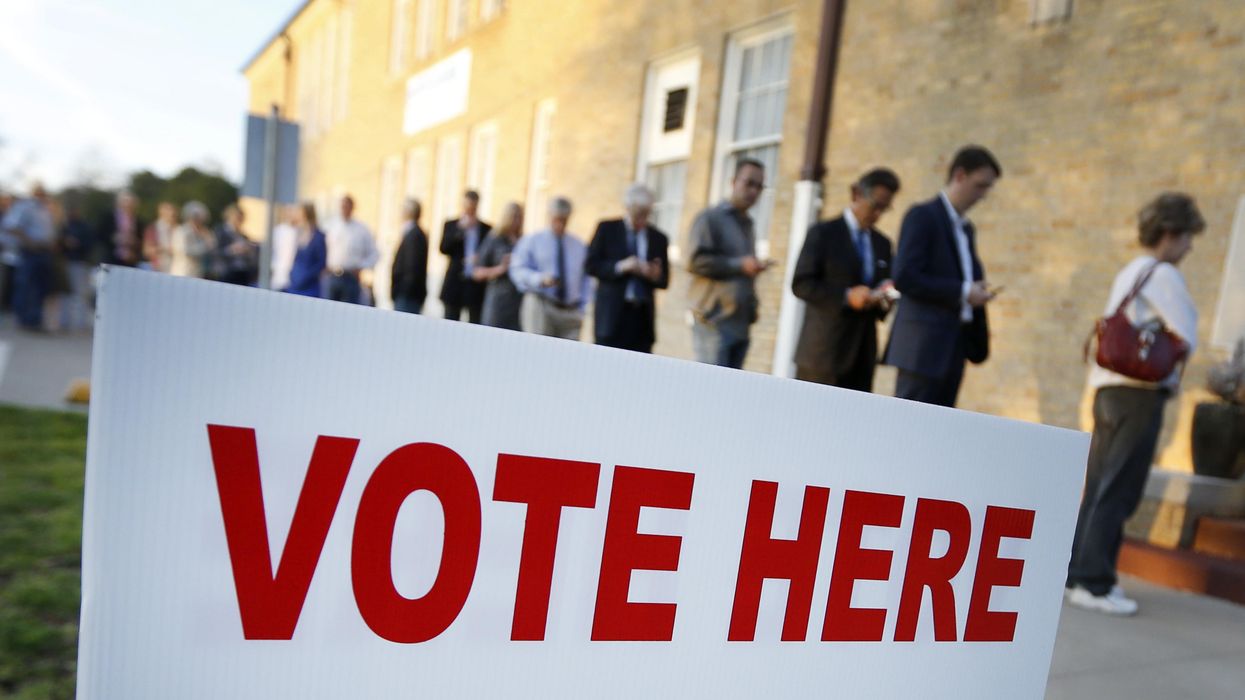In the 2020 election, I almost voted for a candidate from Oregon's Progressive Party. It was my first time voting since coming of age, and I was severely disheartened by the experience, if not all that surprised. You see, my Progressive candidate in all honesty had no chance of winning in the general election because independent and third-party candidates are suppressed by the Democratic and Republican parties. It often feels like the country is divided into Democratic and Republican sections with a tiny percent of voters in the middle that can't decide. At least, that's the narrative that I've been taught my whole life. But it couldn't be more wrong.
Democrats and Republicans have a monopoly — or more like a duopoly — on politics. These two monolithic parties shut out independent voters and other parties in uncompetitive ways. Their most blatant strategy of maintaining control over the government is through closed primaries.
Forty percent of the country. That's roughly how many Americans identify as neither Democratic nor Republican. On the other hand, about 30 percent of Americans identify as a Democrat and another 30 percent identify as a Republican, according to FiveThirtyEight. But when you look at national and local governments, Democrats and Republicans consistently dominate 100 percent of the seats. No wonder I was disheartened about voting for an independent or third-party candidate. For voters like me, it's an uphill battle to elect leaders from different parties even if they have popular support, simply because of the way our elections are run.
Independent and third-party voters are shut out in closed primaries, which are often the elections that really matter. That's why every election year, the Democratic and Republican parties tell these voters to join their party if they want a say. But independents and third-party voters don't want to join a major party in order to vote. Why should they? These are taxpayer-funded elections after all. The fact that independent voters continue to grow in number every year is testament to the fact that their strategy isn't working, it is just plunging us deeper into political dysfunction.
We often underestimate the impact that primaries have on the political playing field, but as the country becomes more and more polarized and sinks deeper and deeper into its liberal or conservative communities, many cities and counties that lean left or right practically guarantee that whoever wins their primary election will win in the general election. That means that while third-party and unaffiliated voters might feel as though their vote counts in the general election, the truth is that the winning candidate was already decided in the primary election.
To me, the single most frustrating thing about a two-party, closed primary government is what it does to our elected leaders. It reinforces the "us vs. them" mentality and encourages radicalization. I've seen our political leaders cater to their polarized voters, as these voters are the most likely to donate and show up to the polls. Once these far right and far left leaders are put in the same building, compromising on policy becomes practically impossible.
Moreover, independent candidates and third parties face a nearly impossible battle of competing with Republicans and Democrats for a variety of reasons, including the spoiler effect. This is when voters don't vote for their preferred candidate, and instead vote for a less preferred but more mainstream candidate simply to prevent their least preferred candidate from winning. (This is exactly what I did in the 2020 election.) It becomes a battle of who is the least bad candidate, instead of who is the best candidate.
That's messed up. Not only are voters like me compelled to register with parties we don't identify with and choose candidates we don't like, but we are excluded if we don't. Instead, we should have one big open primary where all parties and voters could give their input, instead of just the 60 percent of voters who are either Republican or Democratic.
That could be coming sooner than you think. More and more young Americans are registering as independents than ever before. We are tired of thinking only left and right. We think left, right, forward, backward, down and up. With open primaries and ranked-choice voting campaigns sprouting up, we are approaching a more representative democracy that benefits everyone, not just the political duopolies.



















